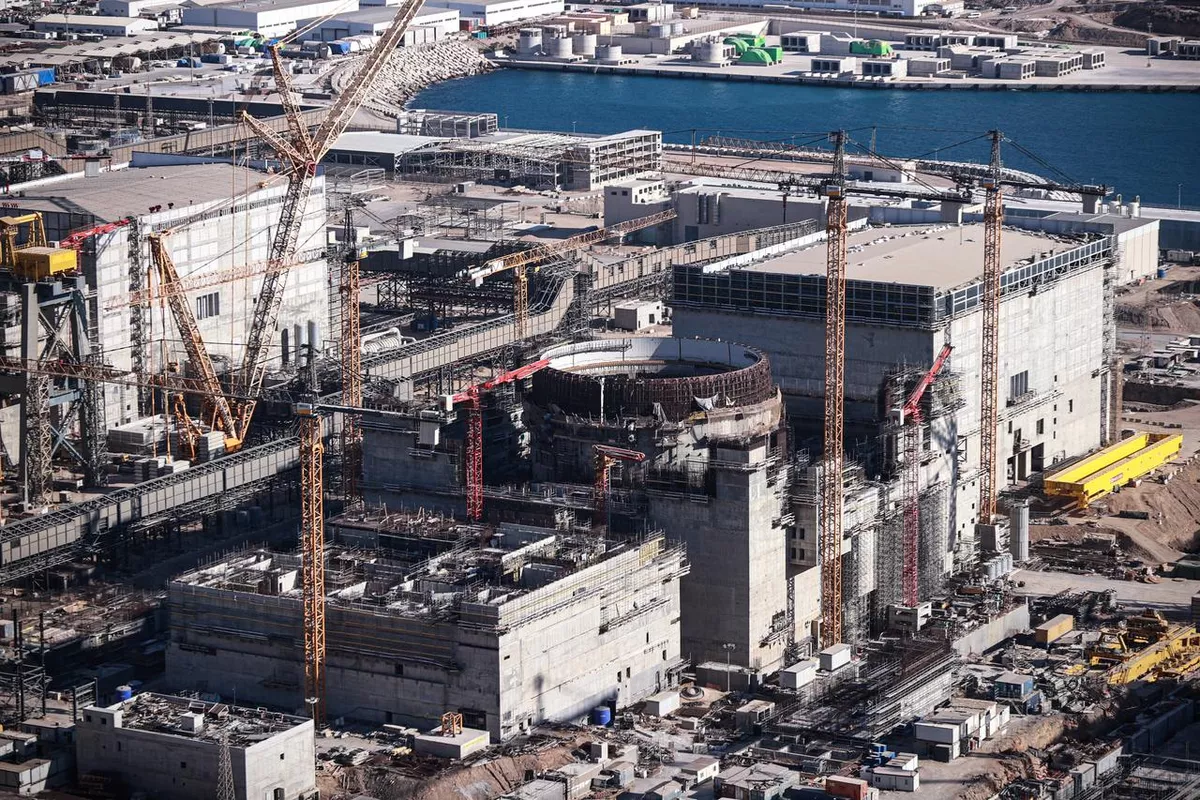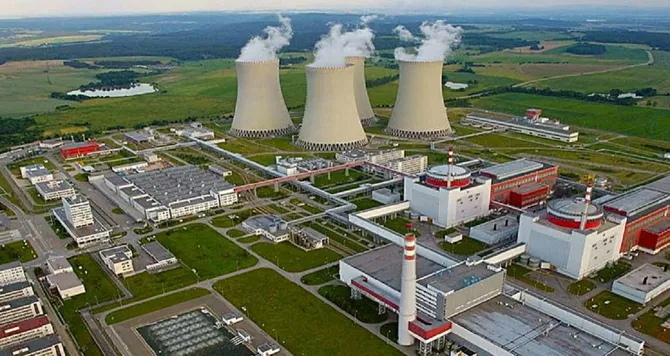
photo: Türkiye Today
Türkiye is on the verge of taking a bold step toward joining the elite “nuclear club.” This ambition is not about nuclear weapons-at least not for now-but about energy independence, technological sovereignty, and positioning itself as a regional power capable of setting its own course.
The announcement came directly from Mehmet Fatih Kacır, Türkiye’s Minister of Industry and Technology, who used the country’s social platform NSocial to outline the government’s vision. Under the “National Technological Leap” initiative, Türkiye intends to meet its rapidly growing energy needs-ranging from artificial intelligence and the defense industry to steel and chemical production-through domestic, zero-carbon, and uninterrupted solutions. Central to this plan is the creation of a homegrown nuclear reactor, designed and built entirely with local expertise and resources.

photo: World Geostrategic Insights
For decades, Türkiye has relied on foreign partners for its nuclear development, most notably through projects like the Russian-built Akkuyu nuclear power plant. But Ankara’s new approach signals a shift: the country wants to reduce its dependence on external suppliers, ensure energy security, and strengthen its independence. High-tech reactors will be developed using the capabilities of Turkish industry, universities, and key research institutions such as TÜBİTAK and TENMAK, with a heavy emphasis on local production and innovation.
A Longstanding Nuclear Legacy
While this announcement might sound like a radical new step, Türkiye is not a newcomer to the nuclear field. Its nuclear ambitions date back to the mid-20th century. In 1956, Ankara established the General Secretariat of the Atomic Energy Commission, later restructured into the Turkish Atomic Energy Authority in 1982. By 1962, the Çekmece Nuclear Research and Training Center (ÇNAEM) was opened, becoming the heart of Türkiye’s nuclear research and specialist training.
Over the decades, Türkiye invested in research facilities such as the Sarayköy Nuclear Research and Training Center, opened in 2005, and the ANAEM nuclear research center, launched in 2010. Even today, Istanbul Technical University operates a training and research reactor (TRIGA). Several compact accelerators are also active in the private sector, particularly in the medical field.
This robust infrastructure positions Türkiye as one of the leading nations in the Middle East when it comes to nuclear science and technology. However, transitioning from advanced civilian nuclear capabilities to nuclear weapons remains a distant prospect, according to experts.
Fuel Independence: Türkiye’s Greatest Advantage
Analysts at the Carnegie Moscow Center have noted that Türkiye’s strongest asset in its nuclear push is its domestic fuel supply. The country possesses proven uranium ore reserves of at least 9,000 tons, sufficient to power its nuclear energy sector for 30-50 years without external imports. Even more significant is Türkiye’s massive thorium reserve-estimated at 380,000 tons.
Thorium is especially noteworthy because it can be used in nuclear reactors and eventually converted into weapons-grade uranium-233. For years, American companies such as Westwater Resources had exclusive rights to develop these resources. But in 2018, Türkiye abruptly revoked their licenses, reclaiming full control over its nuclear materials.
This move was both strategic and symbolic: Ankara was sending a clear message that its nuclear future would be shaped by Turkish decisions alone, free from foreign dominance.

photo: CNN
Erdogan’s Ambiguous Stance
President Recep Tayyip Erdogan has long hinted at Türkiye’s frustration with the global nuclear order. In a 2019 speech, he openly criticized the international system that allows some countries to possess nuclear weapons while prohibiting others.
“It is unacceptable,” Erdogan declared, “that Türkiye and other developing nations are denied the right to have nuclear warheads.”
However, he stopped short of explicitly stating whether Türkiye would seek to develop military nuclear technology, leaving the issue deliberately ambiguous. This ambiguity continues to fuel speculation among Western and Russian analysts, especially now that Ankara has announced plans to create its own reactors.
For now, Türkiye appears focused on peaceful nuclear development, emphasizing civilian energy projects and cutting-edge research. But as geopolitical tensions grow, it is difficult to ignore the potential for these technologies to be repurposed for military purposes in the future.
The Human Factor and Past Setbacks
One of the most significant obstacles to Türkiye’s nuclear ambitions has been the training of specialized personnel. In November 2007, a tragic event shook the country: a plane crash killed 58 passengers, including six leading Turkish nuclear scientists who were traveling to investigate thorium deposits in Isparta. Later reports suggested possible involvement of the Fethullah Gülen movement, though the exact circumstances remain shrouded in mystery.
The loss of these experts was a serious blow to Türkiye’s nuclear program. Yet, history shows that Türkiye has repeatedly demonstrated resilience and the ability to achieve ambitious goals, even after severe setbacks.
A Political Gamble with Global Implications
The decision to pursue domestic nuclear reactor development is not merely about technology or energy-it is a political gamble. It signals Türkiye’s desire to rise as an independent, technologically advanced power and to assert its influence both regionally and globally.
Western nations will undoubtedly view these developments with a mix of concern and caution. While Ankara insists its goals are peaceful, the overlap between civilian and military nuclear technology will continue to provoke suspicion. The stakes are high: Türkiye’s progress in this domain could reshape power dynamics in the Middle East and beyond.
If geopolitical rivalries do not derail Türkiye’s plans, its vision of becoming a self-sufficient nuclear power could soon become reality. This would not only meet its energy needs but also elevate its standing on the world stage-turning Türkiye into a key player in the 21st-century nuclear landscape.
By Tural Heybatov
Share on social media